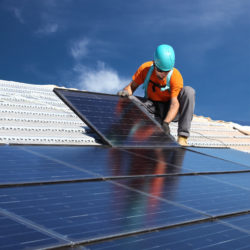Top Class Actions’s website and social media posts use affiliate links. If you make a purchase using such links, we may receive a commission, but it will not result in any additional charges to you. Please review our Affiliate Link Disclosure for more information.

While it was thought at the time that this restriction prevented national energy conglomerates from taking over in local regions, it still allowed for what was essentially a “government-sanctioned monopoly,” according to www.opensecrets.org.
In the last twenty to thirty years, there has been a big push to offer deregulated electricity and natural gas. Deregulation means allowing local third-party sellers to purchase energy wholesale and offer it for sale to consumers.
It was thought that opening the market up to these third-party energy retail companies would stimulate competition and allow consumers to purchase deregulated electricity at a cheaper rate. It would also offer the consumer the ability to make an informed choice regarding their provider.
Local electric companies sanctioned by the PUHCA had to justify any increase in gas and electric rates to the public and state regulators before any rate hikes could be enacted. With deregulated electricity and natural gas, these same standards apparently don’t apply. The new third party sellers seem to be able to raise rates without accountability.
To date, 24 states have enacted deregulated electricity and natural gas plans. Some of these states, such as Pennsylvania, report a very successful result with average savings of consumers switching to the cheapest energy provider saving approximately $10 per month. This state started its energy deregulation process in the fall of 1998.
The Downside of Deregulated Electricity
Other states, such as California, report very disappointing results after the process of deregulation was undertaken a full two years prior in 1996. Public sentiment turned against the idea of deregulated electricity and natural gas when prices rose dramatically afterwards. Intense pressure to return to previous regulations came and went following an acute rise in the wholesale price of energy in the year 2000.
One of the biggest criticisms of deregulated electricity and natural gas has been how the third-party sellers can operate without certain standards. There have been numerous reported incidents of energy brokers luring consumers into changing carriers by offering low, supposedly fixed rates and then later modifying their accounts to variable rates. Critics say these are cases of classic “bait and switch” sales tactics.
There have also been reports of third-party sellers developing multi-level marketing plans or pyramid schemes in their approach to cornering part of the market with promises of commissions per sale. Commissions only serve to increase the cost of deregulated electricity and natural gas rather than fulfill the promise of lowering prices. Other reports of aggressive and misleading sales techniques have also been reported such as offering non-energy based reward rebate programs.
There are many thoughts on what next steps need to be taken in this atmosphere of deregulation. Many feel that PUCHA needs to be repealed, while others worry that this would cause the consumer to lose a whole host of further market protections.
Several energy consumers have taken matters into their own hands by filing energy deregulation overcharge class action lawsuits.
Join a Free Energy Deregulation Class Action Lawsuit Investigation
If you buy your electricity and gas through an energy retailer in a state where energy was deregulated and your energy costs went up, you may qualify to file an energy deregulation overcharge lawsuit or class action lawsuit.
ATTORNEY ADVERTISING
Top Class Actions is a Proud Member of the American Bar Association
LEGAL INFORMATION IS NOT LEGAL ADVICE
Top Class Actions Legal Statement
©2008 – 2024 Top Class Actions® LLC
Various Trademarks held by their respective owners
This website is not intended for viewing or usage by European Union citizens.















One thought on Did the Promise of Lower Prices on Deregulated Electricity Fail to Deliver?
add me